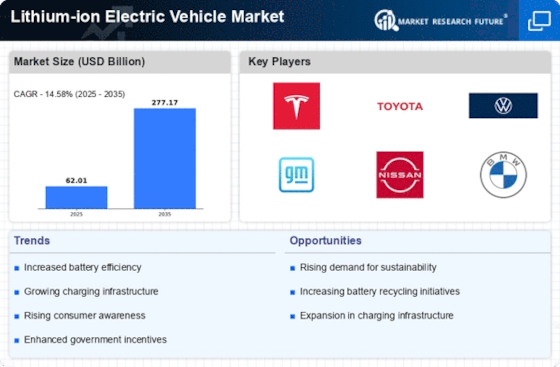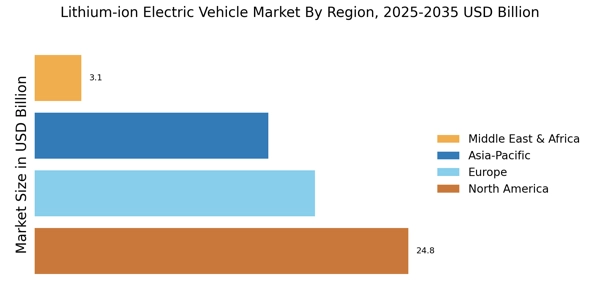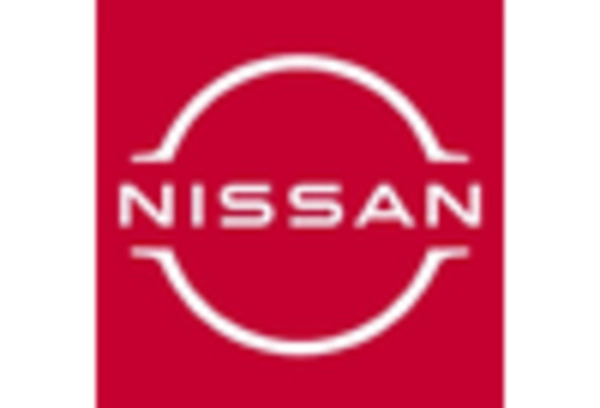Rising Environmental Concerns
The increasing awareness of environmental issues is driving the Lithium-ion Electric Vehicle Market. Consumers are becoming more conscious of their carbon footprints and are seeking sustainable alternatives to traditional vehicles. This shift in consumer behavior is reflected in the growing demand for electric vehicles, which are perceived as a cleaner option. In 2025, it is estimated that the market for electric vehicles will reach approximately 30 million units sold, indicating a robust growth trajectory. As more individuals and organizations prioritize sustainability, the Lithium-ion Electric Vehicle Market is likely to experience accelerated growth, as manufacturers respond to this demand by developing more efficient and eco-friendly vehicles.
Advancements in Battery Technology
Technological innovations in battery technology are significantly influencing the Lithium-ion Electric Vehicle Market. The development of higher energy density batteries, which allow for longer driving ranges, is particularly noteworthy. In 2025, the average range of electric vehicles is projected to exceed 400 miles on a single charge, enhancing consumer confidence in electric vehicle adoption. Furthermore, improvements in charging speed and battery lifespan are making electric vehicles more appealing. As manufacturers invest in research and development, the Lithium-ion Electric Vehicle Market is expected to benefit from these advancements, leading to increased sales and market penetration.
Expansion of Charging Infrastructure
The expansion of charging infrastructure is a critical driver for the Lithium-ion Electric Vehicle Market. As more charging stations are installed in urban and rural areas, the convenience of owning an electric vehicle increases. In 2025, the number of public charging stations is anticipated to surpass 1 million globally, facilitating easier access for electric vehicle owners. This growth in infrastructure not only alleviates range anxiety but also encourages potential buyers to consider electric vehicles as a viable option. Consequently, the Lithium-ion Electric Vehicle Market is likely to see a surge in demand as charging accessibility improves.
Government Incentives and Regulations
Government incentives and regulations play a pivotal role in shaping the Lithium-ion Electric Vehicle Market. Many governments are implementing policies that promote electric vehicle adoption, such as tax credits, rebates, and stricter emissions standards. In 2025, it is projected that over 50 countries will have established incentives to encourage electric vehicle purchases, significantly impacting consumer decisions. These supportive measures are likely to stimulate market growth, as they lower the overall cost of ownership for electric vehicles. As a result, the Lithium-ion Electric Vehicle Market is expected to thrive in an environment that favors sustainable transportation solutions.
Increasing Investment in Electric Vehicle Startups
The surge in investment in electric vehicle startups is a notable driver for the Lithium-ion Electric Vehicle Market. Venture capital and private equity firms are increasingly funding innovative companies focused on electric vehicle technology and production. In 2025, investments in electric vehicle startups are projected to reach over 10 billion dollars, indicating strong investor confidence in the sector. This influx of capital is likely to accelerate the development of new technologies and models, enhancing competition within the Lithium-ion Electric Vehicle Market. As startups introduce novel solutions, established manufacturers may also be compelled to innovate, further propelling market growth.

















